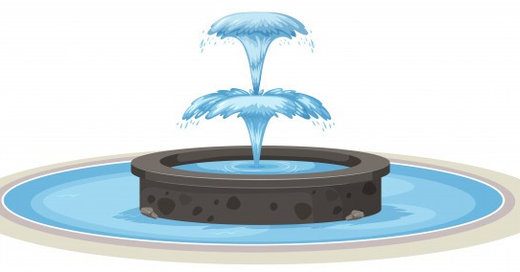Life is busy, and it’s easy to end up packing so much into each day that you wind up skimping on the most important thing you do every night: sleep.

As ambitious as you might be about your schedule, nobody likes the feeling of waking up and beginning the day practically asleep on their feet. What’s more, the consequences of sleep deprivation can be far more severe than a loss of productivity.
Too many nights of lost sleep add up, and chronic sleep deprivation can turn the symptoms from uncomfortable into serious health issues. To understand the importance of giving your body the rest you need, it’s critical you understand how lack of sleep impacts your body and mind.
Degrees of Sleeplessness
Sleeplessness comes in multiple stages, and the longer it goes on, the more serious a problem it becomes. The lines between these phases can be hard to recognize at first, but it’s important to learn to discern them, so you can address the issue before it becomes a serious concern.
- A Few Nights of Poor Sleep- Everyone’s been there—sometimes you just can’t get enough sleep, whether it’s due to looming deadlines that lead to late nights, the neighbor’s barking dog, or general stress and anxiety. Although you’ll quickly feel the impact in terms of your day-to-day performance, this stage is usually not a serious issue. Common signs that set in after only a few nights of poor sleep include a shorter temper, slow reaction time, and a lack of energy.
- Sleep Deprivation- When lack of sleep starts to become a long-term pattern, you are sleep deprived. It’s easy for people to fall into a pattern of sleep deprivation because it doesn’t always seem like a problem. Common among students who stay up late studying or people trying to work two or more jobs, it often takes the form of people shaving two to three hours off the recommended daily sleep recommendation of seven or more hours a night. Much of today’s culture idealizes this “hustle” and “grind” without acknowledging how unsustainable they are. Although you can recover from one or two nights with less sleep, incorporating insufficient sleep into your routine will damage your health.
- Acute Insomnia- This is a more severe form of sleep deprivation, in which people find it difficult to get any consistent sleep for a period of days to a few weeks. Acute insomnia is usually related to life events and is also known as adjustment insomnia. The most common causes are life stressors like losing a job, a death in the family, or a move. It’s common for people who are preoccupied with various tasks after one of these events to keep themselves awake at night trying to plan, which usually worsens the stress.
- Chronic Insomnia- This is the more severe form of insomnia and is characterized by an inability to fall asleep or stay asleep more than three nights a week for a period of three months or more. Many people who have chronic insomnia have been struggling with this disorder for years, and it can be seriously debilitating. While it is often caused by stress, it can also be tied to poor sleep habits, mental illness or neurological disorders, or side effects of medication.
Sleep and Physical Health
Both short and long-term sleep deprivation can wreak havoc on your body. A lack of healthy sleep weakens your immune system, making you more vulnerable to common illnesses like colds and the flu. Long term, lack of sleep will slow down your metabolism, leading to an increased risk of disorders like diabetes and high blood pressure. It also throws off your concentration and sense of balance, which puts you at a greater risk for accidents and injuries.
Sleep and Mental Health
As anyone who’s ever gotten into a fight over the breakfast table after a late night knows, lack of sleep can affect your mood after only a short time. It makes you more vulnerable to mood changes and quickens your temper.
In the long-term, it can contribute to anxiety and depression. If you’re cutting back on sleep because you’re trying to study or learn new material, this can be counterproductive—thinking and concentration require sleep, so your brain can recharge. Sleep deprivation makes the mind fuzzy.
Long-term, it can also affect your memory and lower your sex drive. The good news is, you can reverse these effects fairly quickly with a change in sleep habits. You can learn more at Sleep Science by SleepMoment.
Rest Easy and Heal Your Mind
Sleep deprivation can affect almost every area of your life. Fixing this starts with changing your sleep habits and giving your body and mind the rest they need. The effects of sleep deprivation can be serious, but many of them are reversible in the early stages and change for the better starts with the first good night’s sleep.




Recent Comments